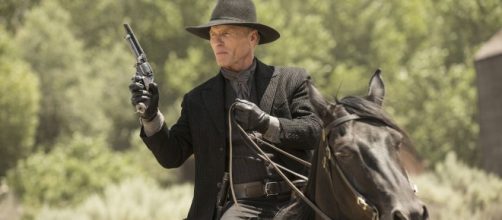When Westworld debuted only a few weeks ago, there was an almost universal consensus that the show was guaranteed to become a mainstream hit. Some even speculated that the series would go on to attain a similar level of success as other high profile Sci-Fi fantasy shows, like Game of Thrones and The Walking Dead.
Give us more!
So, given that there is all this hype, I want to preface everything by saying that I really do like the show. With its intriguing world building, high quality production values and innovative musical score, there’s genuinely a lot to admire and appreciate here.
You should definitely give it a go if you haven’t already. But at the same time, it can be a deeply frustrating watch, a quality that has become apparent in the last few patience-testing episodes.
What I take issue with specifically, is the way that Westworld shows an absolute disregard for Chekhov's gun. For those who are unaware, this storytelling maxim dictates that if a writer proposes that something can happen, or that a certain element may go on to have significance, then it is absolutely vital that it does. In the writer’s own words; ‘One must never place a loaded rifle on the stage if it isn't going to go off. It's wrong to make promises you don't mean to keep'.
However, Westworld has consistently made a point of denying certain anticipated events.
There have been several occasions on the show where a character (usually Ben Barnes' Logan) has brought up the possibility of an exciting occurrence taking place, only for someone to shoot them down (figuratively, not literally) and force us to listen to po-faced philosophising instead.
The moment that immediately springs to mind comes in episode 2, when Lee Sizemore, the company’s overzealous narrative director, pitches a new raft-themed attraction; one that is filled with adventure, sex and gratuitous Violence. After he's finished his obscene proposal, Ford (The Park's Owner) simply shuts him down with one word; ‘No’. Granted it was a crass pitch, one that was entirely based around sensationalism and cheap thrills, but it got me excited.
I wanted to see the guests go through this ride.
Instead, Ford maintained that people don’t want that kind of thing anymore, that they want something loftier and more cerebral. This is the doctrine of the show itself, which has continually avoided anything that could be construed as sordid, in favour of constant intellectualising about morality and the human condition. Which seems odd, because for a show so heavily focused on deconstructing what we consider to be fun, it doesn’t let us have any of our own.
We feel judged
Call me stupid, but I don’t see why Westworld can’t have its cake and eat it too. There's no reason why the writers can't do all this academic posing, and still deliver on entertainment value.
It’s aggressively anti-HBO at times, treating violence and sex with outright disgust. In fact, I feel like the show is reprimanding me for wanting excitement, which is fine to an extent. I get that it’s trying to comment on our insatiable bloodlust when it comes to entertainment, but that doesn’t mean that it has to go out of its way to avoid fun altogether. After all, Jurassic Park (another Michael Crichton adaptation) devotes a lot of its run-time to analysing the ethicacy of its subject matter, but at the same time, it remembers to deliver on the high-octane Dinosaur Action too.
Meanwhile, Westworld would rather look down its nose at you for wanting the very thing that you initially tuned in for.
And make no mistake, we did tune in for excessive brutality, it's a HBO production for Pete's sake! What’s worse is that when Westworld circumnavigates a set-piece that its built up, it rarely finds anything to replace it with. Rather than subverting expectations or providing an alternative to mass bloodshed, the show just settles for nothing happening at all. And there’s nothing dramatically interesting about that. Nothing isn’t clever or insightful, nothing is just nothing.

